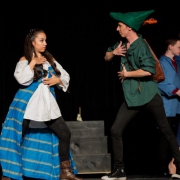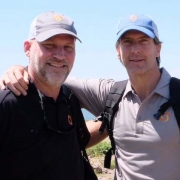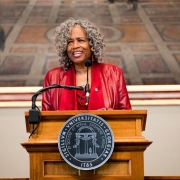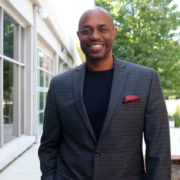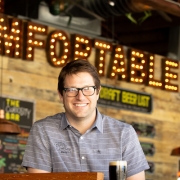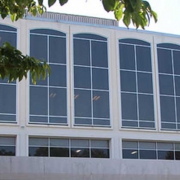An interview with Sally Williamson (ABJ ’83)
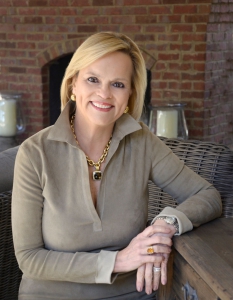
Sally Williamson, Founder and CEO of Sally Williamson & Associates
Sally Williamson (ABJ ’83) has made a name for herself in the communication business.
With 30 years of experience to her name, Sally is the founder and president of the Atlanta-based Sally Williamson & Associates. Focusing on the spoken side of communication, the company is approaching 20 years of executive coaching, consulting, workshops and more to create effective workplace communicators.
The company has published three books that detail her practices’ beliefs: The Hidden Factor: Executive Presence, Leading Executive Conversations, and Storylines and Storytelling: What They Remember and Repeat. The group has also started a podcast that features female leaders across the business world, with stories from executives at companies like Delta and TD Bank.
Alumni Association: How would you describe your business to someone who is unfamiliar with it?
Sally Williamson: We’re a communication consulting group that helps people influence and impact others through effective communication practices.
AA: How did you get into consulting like this?
SW: I was a journalism school graduate. I was intrigued by messaging in business and thought that I would start out on a public relations track. Instead, I got closer to the communicators and learned the foundational skills of personal delivery and presence. That’s oversimplifying it, but eventually I brought the two concepts together in executive coaching.
AA: What inspired you to create your own business?
SW: I worked in the training field and saw both the strengths and limitations of a set curriculum. I was always more intrigued by how people used skills once they left a training program versus how well they did in a workshop. And, I learned that most training formats were weak on the application of skills. I saw an opportunity to blend training with coaching and ensure that skills are applicable in any business setting.
And, that’s what my firm is known for: the customization of training, the added coaching elements and the expertise to understand and solve for the expectations of listeners.
AA: What inspired the start of your podcast?
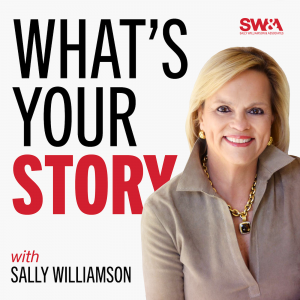
What’s Your Story with Sally Williamson is a podcast that centers on leadership and storytelling.
SW: Two years ago, we released our third book which is called “Storylines and Storytelling: What They Remember and Repeat.” For two years, I did research on how stories are used in business and the skills of a good storyteller. I coined the phrase “the master storyteller” and developed the tools to help anyone become one.
The podcast was a natural outgrowth of that. It’s called “What’s Your Story,” and people who come on the podcast talk about stories in business and how they use stories to make points memorable and repeatable.
AA: Any favorite episodes?
SW: All of them! Don’t want to play favorites. What I love about it is that when we send people an outline for the podcast, they think they’re going to talk about their stories in their business and how they’ve leveraged storytelling to motivate a team, promote a product or position a brand. Ultimately, they reveal themselves as storytellers. And, that’s fun to explore. We’re asking leaders to talk about stories, but they actually illustrate their skills as storyteller.
AA: How do you think your time at UGA impacted your career?
SW: I’m sure my early days relied on technical skills to learn writing disciplines and headlines. But the more long-term impact has been the connection back to the school as a professional. I’ve enjoyed being a part of the Bulldog 100 program for small businesses, and love the opportunities to go back on campus to support programs around professional development.
AA: What advice would you give to a student looking for their first job in the communications field?
SW: Make sure that what you tackle first is experience more than stature. Don’t worry so much about the prestige of the brand you go to work for, or the starting title or role they give you. Put yourself in a position where you can get as much experience as you can and a frontline view of what is really happening around you. It’s the experience you get in the first job that gets you to the second or the third one. I think that’s especially true in public relations and communications – if you can show that you’ve done the work, rather than just been around the work, it makes a huge difference in what you have an opportunity to do next. People in public relations and communications get hired based on experience. What have you done? What do you know how to do?
AA: What are you most proud of, or what has your greatest success been?
SW: There have been many just as there have been many challenges. Success to me is based on how the business has evolved. We’ve been able to take what started as my thoughts and beliefs and grow it into a shared set of tools and skills that a team leverages. I’m proud of that, and that SW&A has become a place where others have developed an expertise and deliver great work. In the last three years, my son has joined the business and that suggests that our product and our work will outlive me.

